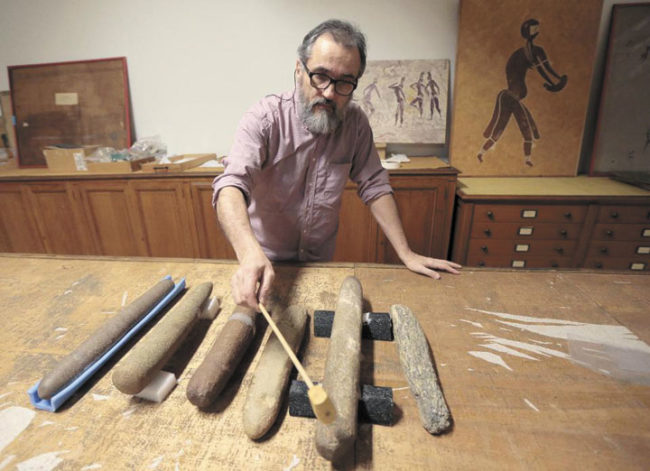By Marilyn Martorano
Several years ago, a number of very interesting and unique artifacts were identified in the Great Sand Dunes National Park and Preserve museum collections and in private collections throughout the San Luis Valley. A cursory study of these artifacts suggested that some of them may have been used as tools called pestles. Pestles were utilized to crush a variety of materials in a vertical up-and-down motion, likely in a mortar made of stone or wood. However, at the time of this initial study, it was not clear why many of the sample artifacts did not exhibit significant use-wear similar to those known to have been utilized as pestles, and why some specimens were so long, heavy and very carefully shaped for a simple utilitarian purpose.
The possible function of some of these groundstone artifacts remained a mystery until recently, when the work of a French researcher, Erik Gonthier, was examined. Gonthier’s research on long, cylindrical stone artifacts collected from Africa confirmed that certain specimens had acoustical properties. Gonthier determined that these acoustically-active artifacts were very likely utilized as portable lithophones, a musical instrument consisting of purposely-shaped rock artifacts that are struck to produce musical notes. Lithophones have been documented from numerous cultures around the world including Europe, the Far East, Africa, the South Seas and South America. Portable lithophones can be made of unmodified stone or can be formally shaped. They are played by being suspended vertically and horizontally, held vertically, played horizontally across the lap, or placed horizontally in groups similar to a marimba or xylophone. While some lithophones from around the world are portable, others are stationary and include large boulders and even stalactites and stalagmites. There are at least two locations in the North America that exhibit concentrations of stationary rock/boulder lithophones: Ringing Rocks Park in Pennsylvania and Ringing Rocks in Montana.


